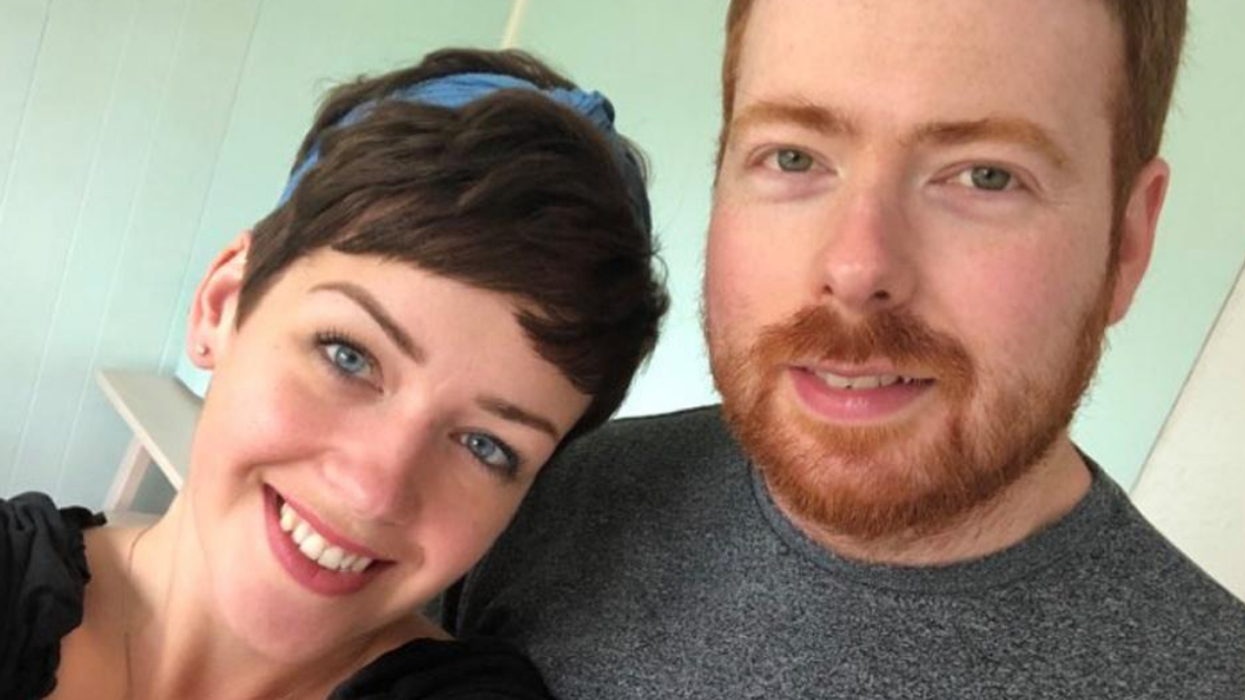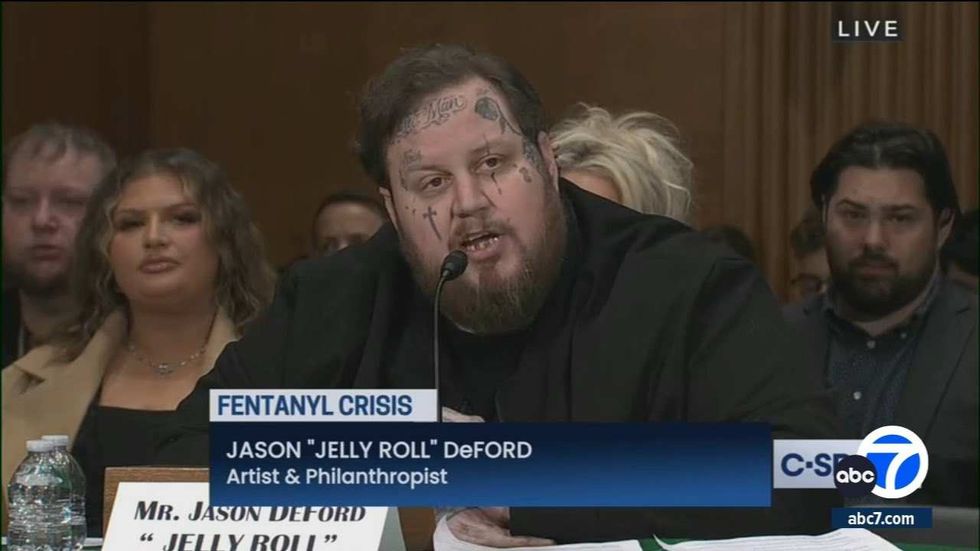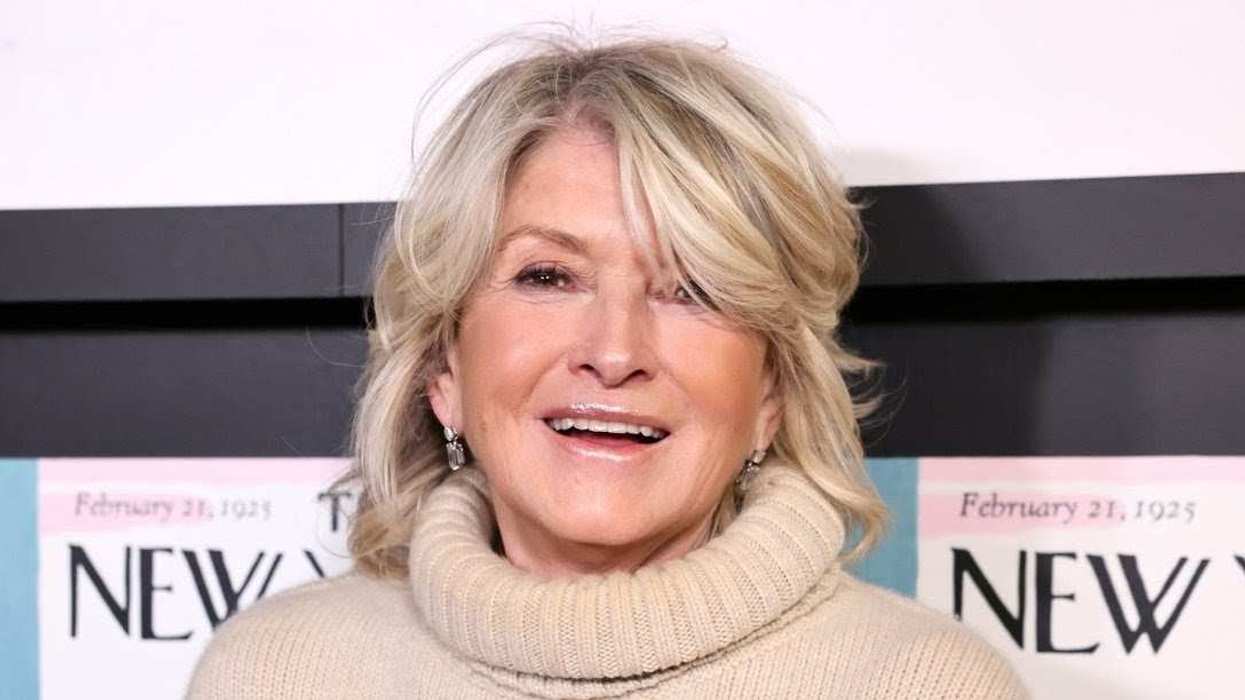Laura Teare-Jones battled mood swings so extreme that she feared she had bipolar disorder, but an Instagram post made her realize they were actually down to a severe form of PMS.
Teare-Jones has dealt with cyclical bouts of what she thought was depression, which she says are like having an “inescapable grey fog" descend on her.
Socializing with friends becomes very difficult, watching an ad on TV can trigger “an absolute meltdown" and she often suffers cluster migraines that leave her bedridden.

“I couldn't stop crying. I knew we had to go soon, but I felt almost stuck to my chair, and I kept sobbing all my make up off," she said.
For years, she went back and forth to the doctor and was repeatedly told it was likely just a low mood, which she tried to combat with exercise and healthy eating.
She feared that the mood swings were indicative of bipolar disorder, a mental health condition characterized by periods of manic highs and depressive lows.
Scrolling through Instagram one day in May 2019, Teare-Jones saw a post about premenstrual dysphoric disorder (PMDD) – a severe form of PMS that can cause extreme anger, anxiety and depression every month, in the week or two before a period.
Consulting her doctor, she was officially diagnosed later that month. And, is now speaking out to raise awareness and spare other women the same 15-year battle for answers that she faced.
“I never connected the way I was feeling to my period. At school, you learn about the physicality of what happens to your body, but the emotional and mental side isn't touched on. It's almost a taboo," she said.

“Some women with PMDD describe it as a red mist of anger that descends on them – but for me, it was more a grey fog. I felt despairing rather than angry," she said.
“It wasn't that I was lashing out at others – I was lashing in, becoming consumed by self-loathing."
Looking back, Teare-Jones cannot pinpoint exactly when her symptoms began.
As a teenager, she noticed she would have mood swings but did not connect them to her hormones, assuming instead that they were just part of her personality.
“I thought maybe I was just a dramatic person," she explained. “I'd feel guilty for having them, and felt like a drain on other people."
“One of the main reasons I never connected them to my period was because, for me, the week I actually menstruated was almost a release and I would feel okay. It was the build-up beforehand that was difficult."

Over the years, she repeatedly felt depressed.
Speaking with doctors, she was advised to eat healthily and exercise in a bid to lift her mood.
“Out of nowhere, I'd be suddenly hit by these feelings of utter despair," she said. “I would blame myself for not looking after my mental health properly."
“Little things like a sad film or moving advert on TV, that might make somebody else a bit emotional, would trigger an absolute meltdown in me. It's like putting a magnifying glass over any little stress you have in your day. It all felt very hopeless," she said.
“Then, every time I built up the courage to go to the doctor, I'd find I suddenly felt better again."
Thankfully, Teare-Jones's husband Gareth has been a source of unwavering support. But, even with him by her side, she still struggled to cope with the extreme mood swings that were ruling her life.

At the start of 2019, she became convinced she may have bipolar disorder.
People with bipolar disorder have episodes of depression, where they feel very low and lethargic, and mania, when they feel very high and overactive.
“Bipolar disorder was the only thing I could think of that would explain the extreme mood swings. But when I read up more about it and its symptoms, it didn't quite fit. I never had manic phases – just depressive ones," she said.
“Although doctors had told me that I was depressed, that didn't make sense either, as it seemed to come and go so often."
Desperate for answers, she began to track her symptoms and any triggers she could think of.
In May 2019, she spotted a post on a friend's Instagram page about the symptoms of PMDD that changed everything.

Heading to the doctors armed with a detailed record of her symptoms, she explained that she believed she may have the condition.
By looking at both the information Teare-Jones had been tracking and her medical history, the doctor was able to make the link to her menstrual cycle and confirm the diagnosis.
“I was lucky, in a way, as other women I have spoken to have had to fight a lot harder for a diagnosis," she said.
“Of course, I was relieved to finally have an answer and to feel less alone, but I also wished I'd made the connection to my hormones years ago. PMDD would have been much easier to cope with if I had understood what was happening, but before I knew about it, I could never tell when my bad days were coming."
Teare-Jones continues to live with PMDD, but she has developed some coping mechanisms to make it more manageable.

“The mood will have lifted by then, but the physical symptoms hit," she said. “Because PMDD has no real cure, I have no choice but to sit and wait for it to pass."
“But I do have an umbrella of sorts to shield me. I will avoid watching anything upsetting, and try not to plan any social events on days where I know I'll feel really low."
“With my job, I can work split shifts so it's not uncommon for me to come home and have a sleep for a few hours, which helps me get through. I try not to blame myself for the way I feel. I read a lot, and also keep a journal, where I note down things I'm grateful for. On the bad days, it helps to look back and remember the good."
According to the Massachusetts Center for Women's Mental Health, PMDD mood symptoms are not present in the absence of a menstrual cycle, therefore, the condition should not affect pregnancy.
But she still finds herself overwhelmed by the condition from time to time.
“One stand-out moment where things got really bad was last summer, when Gareth and I were heading to a wedding in Anglesey, an island off the northwest coast of Wales," she recalled.
“The journey there had been really stressful – the traffic was awful. There were lots of little reasons to be agitated, but I thought I was taking it all in my stride."
“When we got to the hotel, though, PMDD hit me full force and I couldn't stop crying. I have no idea what triggered it. I made it to the wedding, but for the rest of the day, I felt really on edge and detached, almost as if I wasn't really there."
Keen to raise awareness, last month, she set up an Instagram page called @myhormones_myhealth where she documents her life with PMDD, and is also launching a mental health podcast of the same name.
By speaking out, she hopes she will help other women feel less alone, and wants to encourage them to track their symptoms if they are experiencing anything unusual. She is also calling for better education around periods and hormones.
“There are a lot of misconceptions out there about PMDD. It's often confused with PMS but the two aren't comparable," she said.

“It's also not just all in your head, like some people might think. The physical effects can be just as debilitating," she said.
“With my Instagram, it feels strange to put myself out there, but also cathartic to be heard. I get lots of messages from other women, and it's an important thing to talk about."
“I want to raise not just awareness, but hope. PMDD doesn't have to be a life sentence, and it doesn't have to consume you. You can hold on to the good days to get you through the bad."
For information, visit www.instagram.com/myhormones_myhealth







 @WUTangKids/X
@WUTangKids/X @WUTangKids/X
@WUTangKids/X @WUTangKids/X
@WUTangKids/X @WUTangKids/X
@WUTangKids/X







